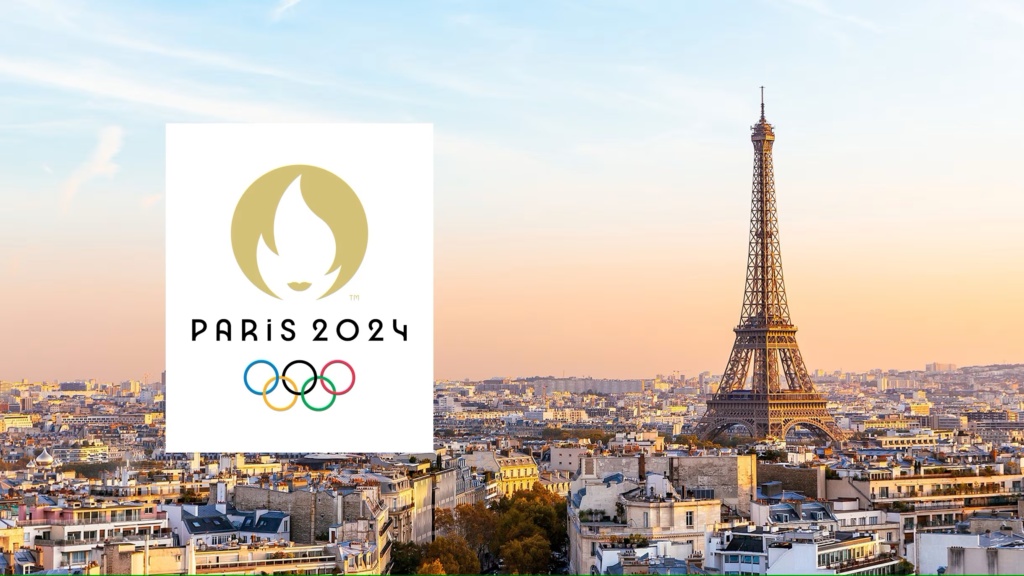
Emerging Threats Facing the 2024 Paris Olympics
The 2024 Summer Olympics in Paris face several significant security risks and threats. These range from physical to cyber threats, as well as potential civil unrest and terrorism concerns. To manage these risks, organizers are implementing comprehensive security measures, including multiple security perimeters, increased surveillance, and collaboration with international security experts.
However, several threats which are often overlooked or not given as much attention, such as the emerging threat of non-metallic edged weapons and the unauthorized reproduction of identification badges. To assist with these and other known threats, the use of AI technology has been increased to assist in preventing attacks.
NON-METALLIC EDGED WEAPONS:
Made from materials such as ceramics, plastics, and composites, they evade traditional metal detection systems, posing unique challenges for security teams.
Threats and Countermeasures:
- Detection Difficulties: Non-metallic weapons can bypass metal detectors, making them difficult to identify with standard screening equipment. These weapons can be fashioned from advanced ceramics, hard plastics, and carbon fiber composites, all of which are undetectable by conventional metal detectors.
- Enhanced Screening Technologies: To counteract this, security at the Paris Olympics will incorporate advanced screening technologies. This includes the use of full-body scanners and advanced imaging technology (AIT) that can detect non-metallic objects based on their shape and density. These systems can identify hidden weapons without relying on metal detection.
- Training and Awareness: Security personnel are being trained specifically to recognize and respond to the threat of non-metallic edged weapons. This includes hands-on training with detection kits and simulation exercises to ensure readiness in identifying and handling such threats effectively (Global Guardian) (S&P Global).
- Increased Security Presence: The French government has significantly increased the security presence in and around Olympic venues. Up to 7,000 troops have been deployed for domestic security duties, and additional police forces are in place to ensure thorough screening and rapid response to any potential threats (POLITICO).
- Comprehensive Security Measures: These measures are part of a broader security strategy that also addresses other potential threats, including terrorism, cyberattacks, and civil unrest. The heightened state of alert and a multi-layered security approach aim to protect athletes, spectators, and officials throughout the event (Stratfor).
FRAUDULENT IDENTIFICATION BADGES:
To prevent fraudulent identification at the Paris 2024 Summer Olympics, several robust measures have been put in place:
- Advanced ID Verification Technology: Sophisticated technologies, including biometric systems such as facial recognition, fingerprint scanning, and iris recognition, are employed to ensure that identification documents match the individual presenting them. This technology helps verify the authenticity of IDs and prevent fraudulent entries (Paris.fr) (Global Guardian).
- Secure Games Pass System: The mandatory Games Pass, which is required for all attendees to access certain areas, incorporates multiple layers of security checks. Obtaining a Games Pass involves thorough identity verification processes, including cross-referencing with official databases to confirm the legitimacy of identification documents (Paris.fr).
- Accreditation Badges with Embedded Security Features: Accreditation badges for athletes, officials, volunteers, and media personnel include embedded security features such as holograms, QR codes, and RFID chips. These features make it difficult to forge or tamper with the badges and ensure quick and reliable verification at entry points (FEI).
- Collaboration with Law Enforcement and Security Agencies: Continuous coordination with international and local law enforcement agencies helps to monitor and detect fraudulent activities. Shared intelligence and real-time data sharing assist in identifying and addressing potential threats promptly (Paris.fr) (Global Guardian).
- Regular Audits and Spot Checks: Security personnel conduct regular audits and random spot checks to verify the authenticity of identification documents and accreditation badges. These checks help deter fraudulent activities and ensure that any discrepancies are quickly addressed (Global Guardian).
- Education and Awareness Campaigns: Organizers have implemented campaigns to educate attendees, staff, and volunteers on recognizing and reporting fraudulent identification attempts. This collective vigilance enhances the overall security framework (FEI).
ARTIFICIAL INTELLIGENCE:
AI is playing a significant role in enhancing security measures for the 2024 Summer Olympics in Paris. Here’s how AI is being implemented:
- AI-Driven Surveillance Systems: The French government has enacted legislation allowing AI-powered video surveillance to detect abnormal events and behaviors at large-scale events like the Olympics. These systems can identify suspicious activities such as crowd surges, abandoned objects, and the presence of weapons. Companies like Videtics, Orange Business, ChapsVision, and Wintics have developed software that analyzes real-time video feeds, providing alerts to human operators for further action (OnSolve) (TheNota).
- Crowd Control: AI is being used to assist with crowd control during the Olympics. The technology can monitor large gatherings, detect disturbances, and potential problems without the use of facial recognition technology. This is particularly crucial for managing the ambitious open-air opening ceremony, which will feature Olympians sailing down the Seine River in front of a massive audience (Voice of America).
- Testing and Deployment: AI surveillance systems have been tested at various events, including concerts by Taylor Swift and Depeche Mode, to ensure their effectiveness before the Olympics. The trials have been successful, and these systems will be deployed across the Paris region and on public transport during the Games (TheNota).
- Privacy and Civil Liberties: While AI surveillance offers enhanced security, it also raises concerns about privacy and civil liberties. To address these issues, France’s Interior Ministry has set up an evaluation committee comprising top administrative officials, privacy watchdogs, lawmakers, and other stakeholders to monitor the use of AI and ensure it respects civil liberties (TheNota).
Overall, AI is set to significantly bolster security efforts at the 2024 Paris Olympics by providing real-time analysis, broader surveillance coverage, and quicker response times to potential threats. However, its success will depend on the accuracy of the technology, effective implementation, and maintaining a balance between security and civil liberties (OnSolve) (Voice of America) (TheNota).
Vanguard Protection is committed to our clients’ safety, and excels at identifying unforeseen risks and threats. For an in-depth threat and risk analysis, contact Vanguard Protection today online at vanguardprotectiongroup.com or by calling 800-651-4940.
#VanguardProtection #2024Olympics #ParisOlympics #Paris #Security #RiskManagement

